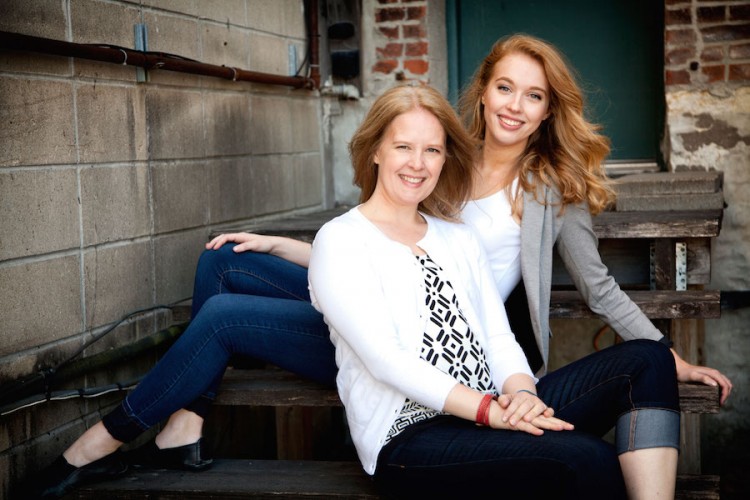After a tough move to a new state, Rebecka Green started skipping breakfast. Then, she ate a small lunch at school. One day when she stepped on the scale, the then seventh grader realized she’d lost 20 pounds.
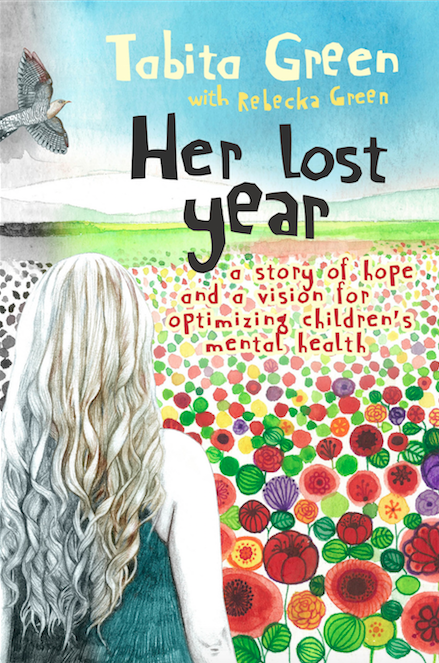 “Then it became an obsession, and I started to restrict on purpose,” she says in the Kickstarter video for the book “Her Lost Year,” written by Rebecka and her mom, Tabita Green.
“Then it became an obsession, and I started to restrict on purpose,” she says in the Kickstarter video for the book “Her Lost Year,” written by Rebecka and her mom, Tabita Green.
She told her parents she was feeling depressed, and doctors quickly put her on anti-depressants. With one prescription, the Greens were launched into the mental health world of hospitalizations, therapists, psychiatrists and more medicine.
“Her Lost Year,” which was published this July, tells the story of this journey — a family navigating its way in a disjointed mental health system, where medication is prescribed to offset the symptoms of medication and hope is sometimes hard to find. But after Rebecka’s full recovery, which involved going off all medication, Tabita decided to publish their story, hoping to give others hope and share her vision of a better mental health system.
The Mighty talked to Rebecka and Tabita about this journey, how it changed their relationship with each other and what they learned about our mental health system.
The Mighty: Why did you decide to open up about your story? Was it a difficult decision?
Rebecka: It took a course of a few months for me to come to terms with it. I’m still coming to terms with it. But it became easier to accept once I realized sharing my story would help many people.
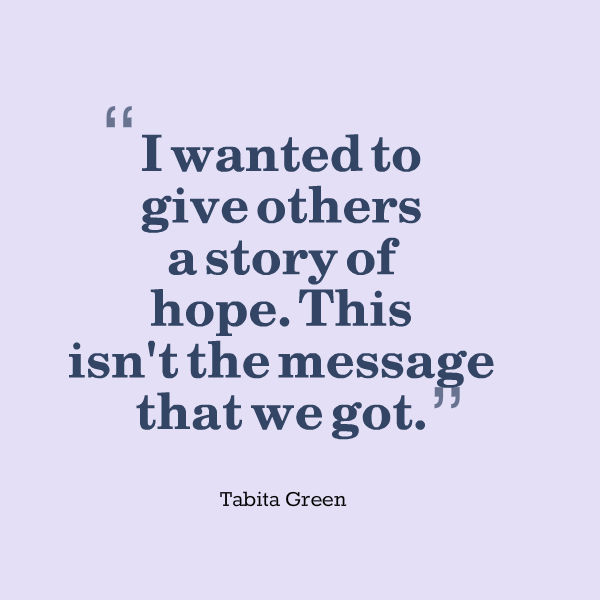 Tabita: For me, it was a way to process what happened. Her recovery was so remarkable and so different than what we thought, I wanted to get this story out and let others know there’s an alternative narrative to what you hear in the media and pop culture. I wanted to give others a story of hope. This isn’t the message that we got. Everything felt really permanent, like our only option was to get the right medication mix that would fix the “problem.”
Tabita: For me, it was a way to process what happened. Her recovery was so remarkable and so different than what we thought, I wanted to get this story out and let others know there’s an alternative narrative to what you hear in the media and pop culture. I wanted to give others a story of hope. This isn’t the message that we got. Everything felt really permanent, like our only option was to get the right medication mix that would fix the “problem.”
The Mighty: Tabita, what was going through your head when all this started?
Tabita: I hoped it was a phase, maybe it was hormones or something that would just go away. As a parent you don’t want to think there’s anything wrong with your kid.
The Mighty: What surprised you about the mental health system?
Tabita: We originally decided to go down the therapy route. It just seemed more severe to go to a psychiatrist than a therapist. One of the surprises was how quickly the therapist suggested she go on medication.
Another surprise was how disjointed the system was. There wasn’t any communication between, for example, the pediatrician and the therapist. When she was released from the hospital, we were really on our own. At that point, I had taken a leave of absence to sort all that out.
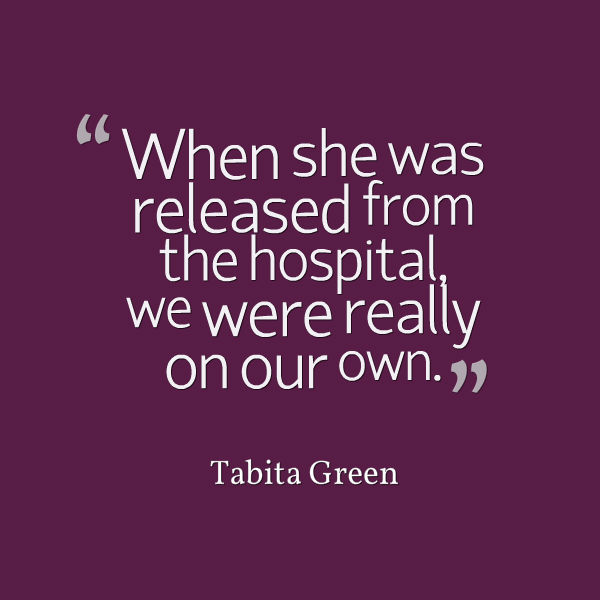 The biggest, most extreme surprise was when we realized she was having so many symptoms because of the medication. It took us a while to put two and two together. From the anti-depressants she was put on originally she was having hallucinations, suicidal thoughts, mania… Then they added additional medications to take care of those symptoms instead of getting to the root of the cause.
The biggest, most extreme surprise was when we realized she was having so many symptoms because of the medication. It took us a while to put two and two together. From the anti-depressants she was put on originally she was having hallucinations, suicidal thoughts, mania… Then they added additional medications to take care of those symptoms instead of getting to the root of the cause.
This is why I wrote the book. Knowing the best way to work the system is not something you can think about when you’re in crisis mode.
The Mighty: How did this experience change your family and your relationship with each other?
Rebecka: I’ve always been close with my parents as long as I remember, but the main thing that changed was I became more honest with them. It’s been good to have open communication in our own home.
Tabita: She’s an only child, so we’re quite close. But there were definitely some rough moments. Like the power struggles over the eating disorder. I have one memory of being a heap on the kitchen floor crying because I felt like I was doing everything I could, and it didn’t matter. She wouldn’t eat. I told her, “I feel like a failure when you don’t eat.” She said, “I feel like a failure when I do.” So even this low moment turned into a chance for us to try to understand each other.
The Mighty: What do you want people to know who are in similar situations?
Rebecka: When I was in and out of the hospital, it was like I was stuck in a rut. It’s too easy to get used to it. So I would tell other kids to think about the future. Also, it’s so important to have a support system. Even now, fully recovered, I need people to talk to. Almost two years after my last hospitalization, I was still talking to a therapist. Having good friends and family members you can talk to is so important.
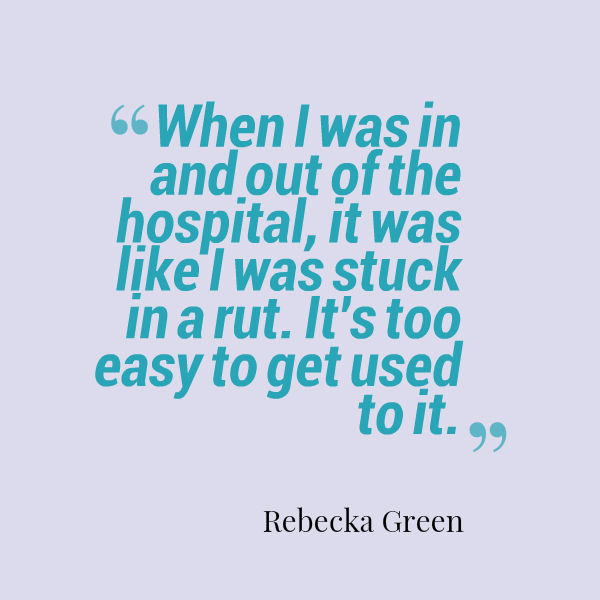 Tabita: As a parent, you need to trust your gut instincts. We know our child best. We had a feeling something wasn’t right, but you want to trust the professionals. I do think they had her best interests in mind, but we have the parental instinct that surpasses that. Trust your instincts. Ask questions. Even just reading your child’s medication label, just so you know about the side effects, is so important. I never did that. We just took it and went with it.
Tabita: As a parent, you need to trust your gut instincts. We know our child best. We had a feeling something wasn’t right, but you want to trust the professionals. I do think they had her best interests in mind, but we have the parental instinct that surpasses that. Trust your instincts. Ask questions. Even just reading your child’s medication label, just so you know about the side effects, is so important. I never did that. We just took it and went with it.
Even if you feel like you’re walking on eggshells, sometimes you need to let those egg shells crunch. Even though she was the patient, it affected our whole family, and when she healed it was like our whole family healed with her.
You can purchase “Her Lost Year” on Amazon or IndieBound.
Editor’s note: This piece reflects an individual’s experience. Please consult a doctor before going on or off medication.



